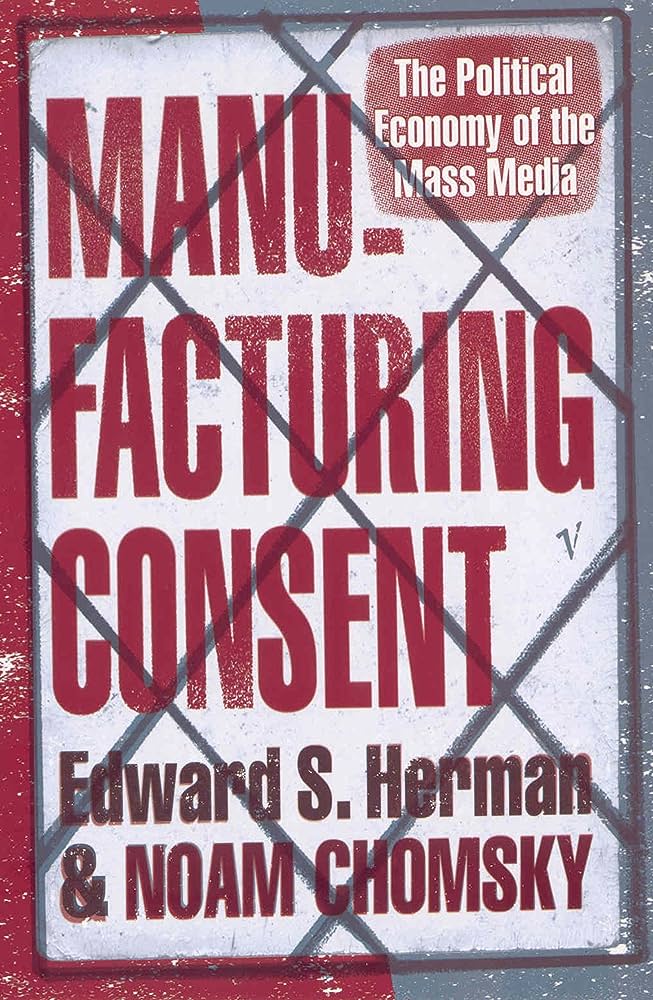The title Manufacturing Consent refers to the 1988 book “Manufacturing Consent The Political Economy of Mass Media” written by Edward S Hernan and Noam Chomsky. By employing propaganda models in the United States, the book argues that Mass media in the country is an effective and powerful institution that is able to control a system-supported propaganda model which relies on self-censorship and over-reliant assumptions.

Mass media can shape public opinion and maintain the status quo, This means that media outlets influenced by corporate and political interests can manipulate information to serve their own agendas. An example of this would be traditional media’s recent attack on new age media such as social media platforms like “Tiktok” and “X” (formerly known as Twitter) Old age media outlets use arguments in the case of TikTok that because it is a Chinese-owned app that the government of China is harbouring millions of peoples data which would be valid only if American owned companies like Google didn’t do the exact same thing. However, what these traditional news outlets aren’t saying is the reason why they see social media as a form of news as a threat is that they can’t regulate news stories to control the narrative they want to put out in the world. On social Media there is less selective reporting and because there are so many people on these platforms it means there is not as much regulation in how issues are framed in a particular way. Although this can be seen as a good thing, there is a fine line where it can also be seen as dangerous as it means that more misinformation can be put out into the world which can mislead people into believing certain ideologies which might be dangerous.

By influencing public perception, traditional media can control the information we receive by being able to downplay certain stories that don’t fit their vision of how they want to portray the story. For example, during political elections, media outlets can focus on certain candidates or parties while downplaying or even ignoring others. By giving more airtime to specific candidates, they can influence public opinion and shape the outcome of the election. This selective reporting can create a perception of popularity or credibility for certain candidates, even if the candidates in question may not necessarily warrant it and do not reflect the true sentiments of the public. Another example of manufacturing consent can be seen in the medias portrayal of social issues we have seen recently from what has been happening in certain areas in the world that media outlets have tended to frame issues in a way that supports a particular narrative or agenda, influencing how people percieve and understand those issues. By controlling information and presenting information in a biased manner, they can influence public opinion and maintain the existing power structures. Therefore, it is important to have a well rounded understanding on topics by seeking diverse sources while also being aware of these dynamics in order to be able of having an opinon on the matter.

sources.

“Manufacturing Consent” insightfully critiques media’s role in shaping public opinion. It emphasizes the symbiotic relationship between mass media and power structures, revealing how media often perpetuates elite interests. This seminal work remains crucial for understanding media influence in democratic societies and the importance of critical media literacy.